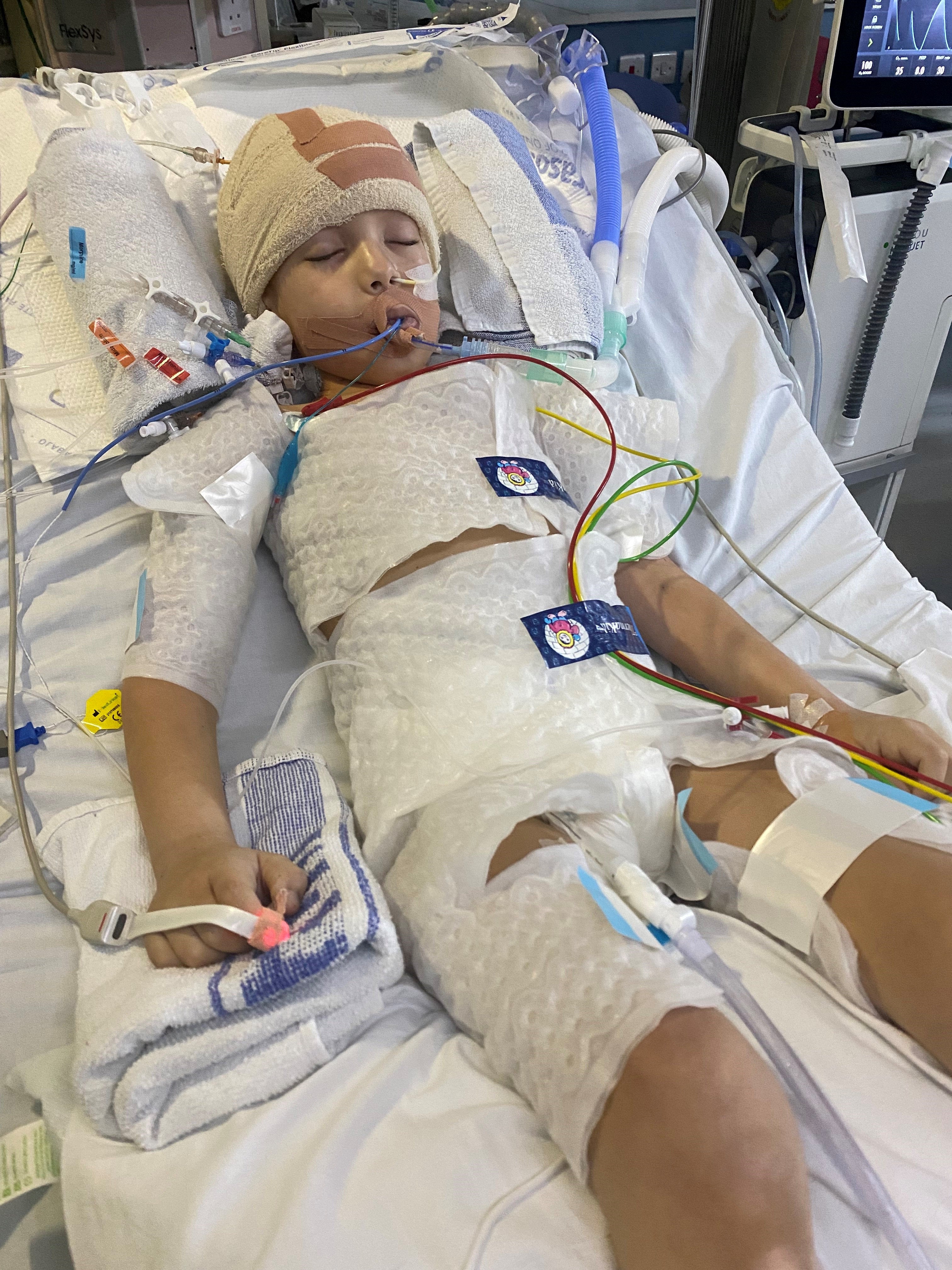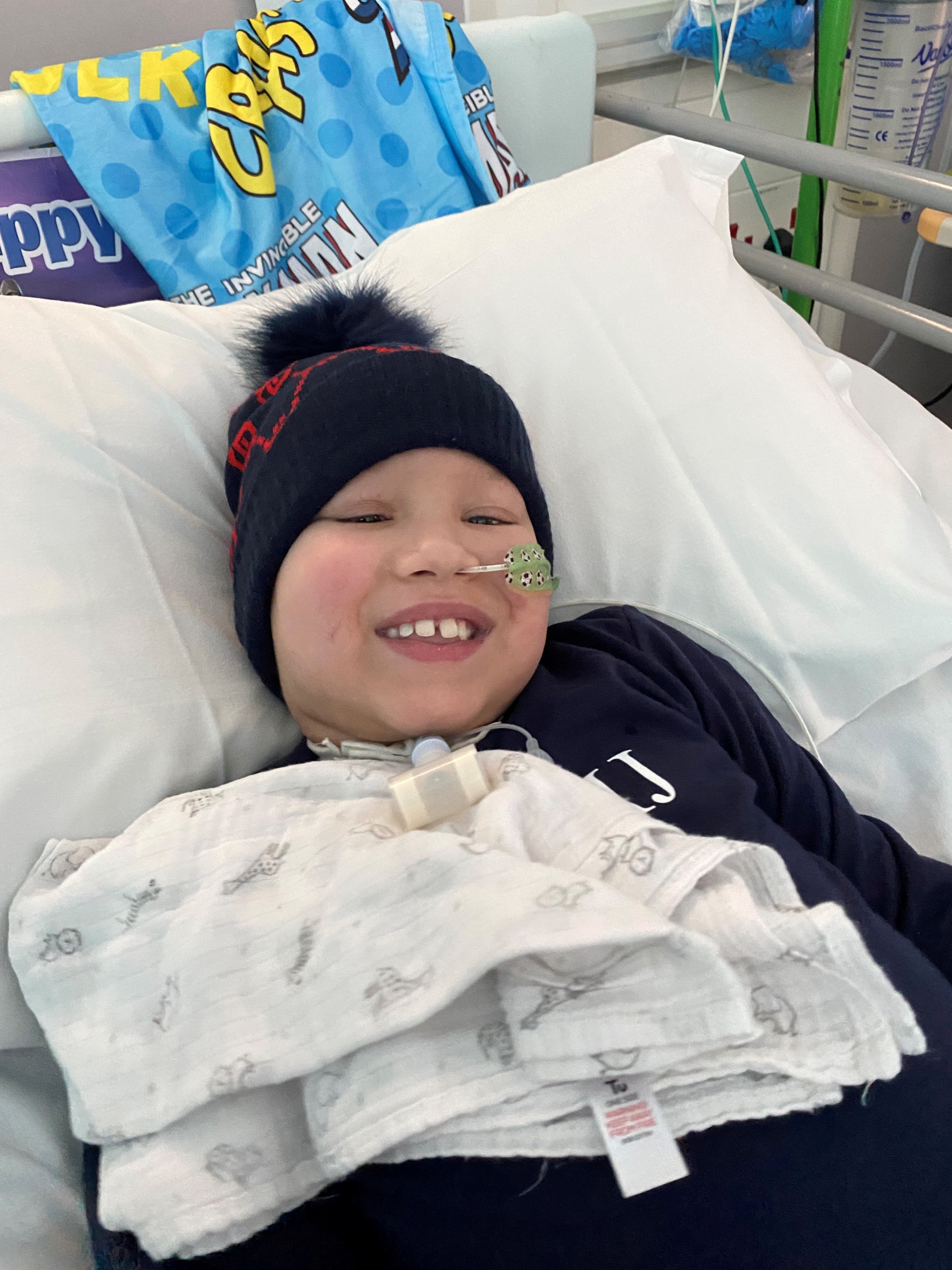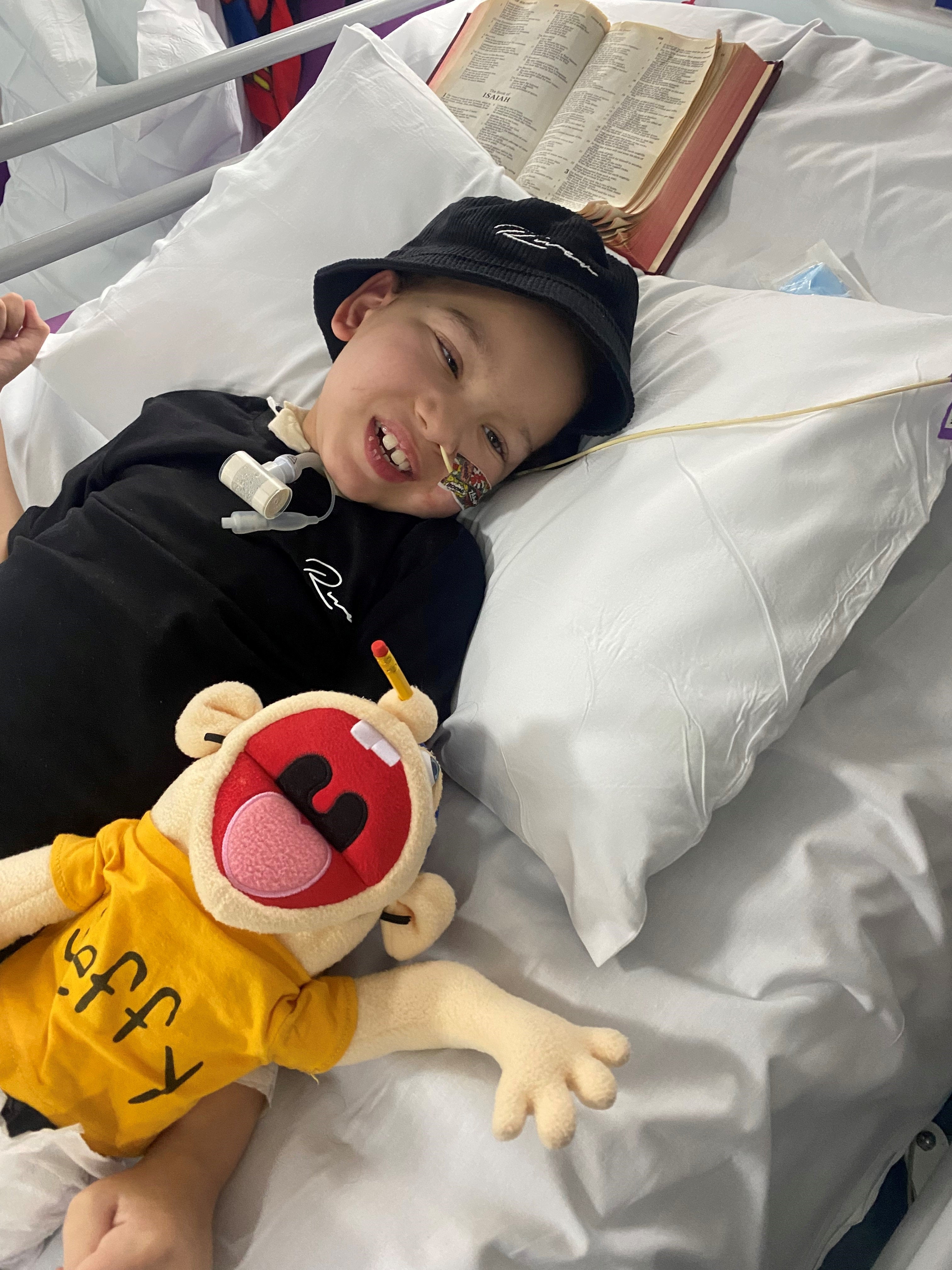Boy dies after golf ball-sized brain tumour misdiagnosed as stomach bug
Isaiah Jarrett, eight, died eight months after being diagnosed with medulloblastoma following bouts of extreme vomiting

A young boy was diagnosed with a brain tumour after doctors dismissed his symptoms as stomach bug.
Isaiah Jarrett, eight, died eight months after being diagnosed with medulloblastoma, a type of brain tumour, following bouts of extreme vomiting.
Doctors initially thought Isaiah’s illness could have been gastroenteritis, it is claimed.
Later he began to vomit blood, suffered with a stiff neck and experienced headaches, which were put down to long episodes of sickness.
After five weeks of no improvement, Isiah’s concerned mother, Dena Allen, 36, demanded answers, a charity said.
Isiah underwent a CT scan at Birmingham Children’s Hospital where it was revealed he had a golf ball sized mass on his brain.
Isaiah had a 15 hour surgery, after which he was told the tumour was an aggressive form cancer. He lost use of his voice instantly after the surgery, due to the position of the lump.
The schoolboy underwent intense chemotherapy and radiotherapy treatment but the cancer continued to spread and Isiah died on 20 July, 2022.
Following her tragic loss, Dena joined the charity Brain Tumour Research as a campaigner. She is aiming to complete 10,000 Steps a Day in February to fundraise.
Recalling the moment she learned her son had cancer, Dena, a mother-of-seven from Castle Vale, Birmingham, said: “My mind went blank and I fell to my knees.
“I thought it could have been something to do with his belly, never in a million years did I expect to be told my little boy had a brain tumour.
“After his first surgery on 20 December I never heard Isaiah’s voice again. He eventually learned to communicate though gestures and murmurs.
“Everything that could possibly go wrong, went wrong.”

Due to the location of his tumour, Isaiah lost his speech instantly and spent five weeks in the intensive care unit (ICU) where he was fitted with a tracheostomy.
Dena said: “Isaiah suffered with swelling and a build-up of fluid which meant he had seven surgeries in total, all of which I was told could kill him.
“You’re faced with an impossible decision as a parent who wants the best for their child.”
Dena was forced to give up her full-time work as a carer to look after her “cheeky” son.
After gruelling chemotherapy and radiotherapy, an MRI scan showed the cancer had spread to his brain stem and spine.
Dena was told no treatment could save her son and Isaiah died at home surrounded by his family.

Statistics provided by Brain Tumour Research show brain tumours kill more children and adults under 40 than any other cancer, yet historically just 1% of the national spend on cancer research has been allocated to brain tumours.
Brain Tumour Research is a charity focused on funding sustainable research at dedicated centres in the UK .
They also campaign for the government and larger cancer charities to invest more in research into brain tumours in order to speed up new treatments for patients and, ultimately, to find a cure.
Mel Tiley, community, and development manager at Brain Tumour Research, said: “We’re heartbroken for Dena and her family on the loss of little Isaiah.
“His story reminds us that brain tumours are indiscriminate, and Dena’s generosity in sharing her son’s story will help us raise awareness of this horrific disease.
“We wish her the best of luck as her challenge begins on 1 February.”
Through her campaigning and sharing Isiah’s heartbreaking story, Dena is determined to continuing raising awareness and help in the fight against brain tumours.
“By taking part in this event and sharing Isaiah’s story I hope to help put an end to brain tumours taking the lives of everyone, especially young children.
“No other family should have to go through the heartache and pain of losing a loved one”, Dena said.
She added: “My main aim this year is to fight to get brain tumours out there and spoken about.
“We need to fully understand them to be able to provide better treatment and eventually a cure to stop anyone else from suffering from this cruel disease.”
Join our commenting forum
Join thought-provoking conversations, follow other Independent readers and see their replies
Comments


Bookmark popover
Removed from bookmarks